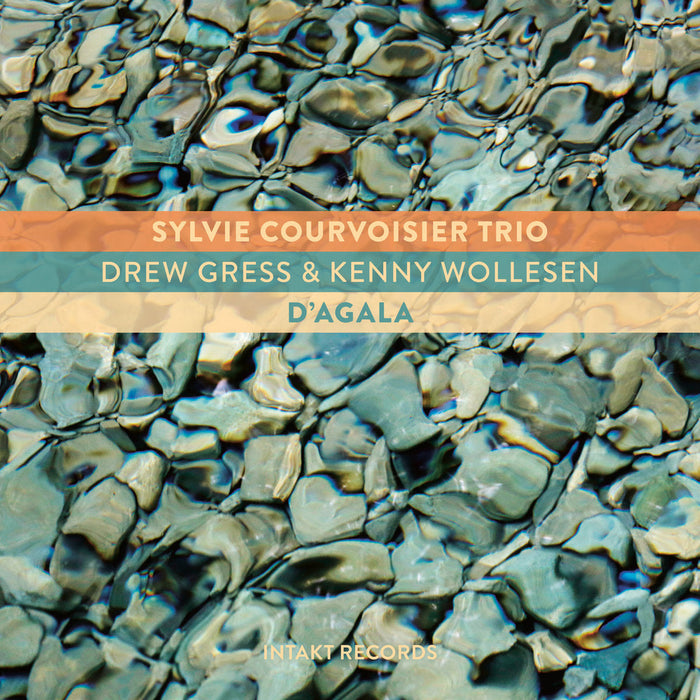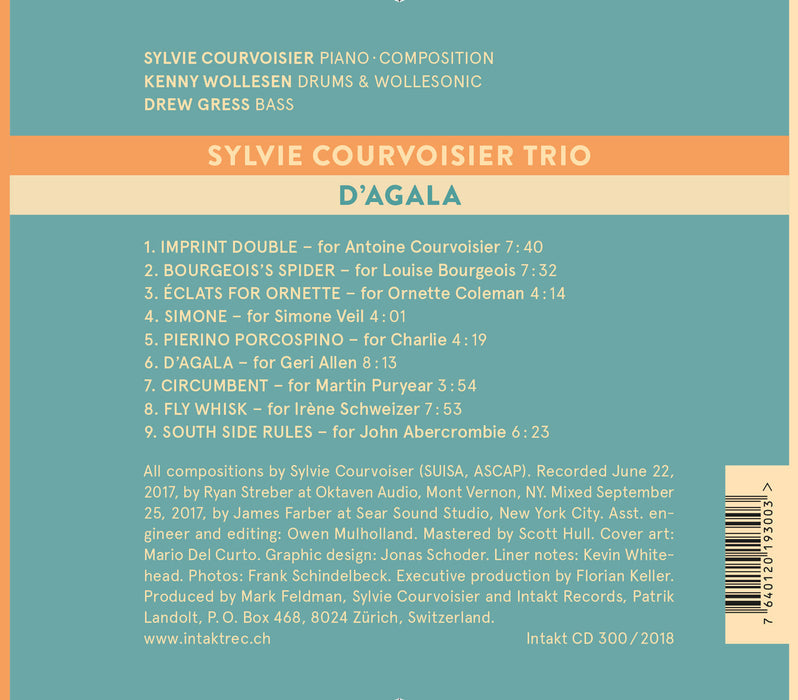
300: SYLVIE COURVOISIER TRIO. D’agala
Intakt Recording #300/ 2018
Recorded June 22, 2017, by Ryan Streber at Oktaven Audio, Mont Vernon, NY.
Original price
CHF 12.00
-
Original price
CHF 30.00
Original price
CHF 30.00
CHF 12.00
-
CHF 30.00
Current price
CHF 30.00
More Info
Album Credits


